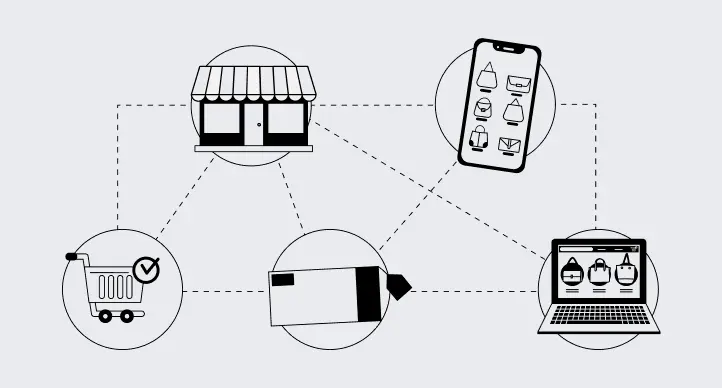
The Myth of Channel Cannabalization
The Myth of Channel Cannabalization
Jan 11, 2024Introduction:
The idea that mobile apps cause Channel cannibalization is a myth. In fact, 50% of Monthly Active Users (MAUs) on mobile apps are new customers who haven't shopped from your web store.
This article aims to demystify and debunk channel cannibalization from mobile apps.
Understanding Channel Cannibalization:
Harvard Business Review defines channel cannibalization as 'sales in new channels offsetting sales in existing ones.' I.e. Adding a new sales channel will reduce sales in other channels.
The myth of Channel cannibalization occurs since sales are perceived as a zero-sum game. This misconception occurs due to a false assumption. The false assumption that sales channels are only to guide users down the sales funnel.
Sales channels are multi-purpose. They not only guide users but also attract new ones. This can be demonstrated by a simple example. Is Social media a sales channel or lead generation?
The answer is both!
The same applies to mobile apps and other sales channels. While they are primarily sales channels, they also attract new customers. Often through the App Store or by lowering the barrier for customers.
In fact, Millenials, Gen Z, and Gen Alpha are transforming e-commerce to become more mobile-first. Hence, mobile apps are becoming more valuable for finding and bringing new customers.
The Synergistic Potential of Mobile Apps:
There's this lingering idea that launching a mobile app is like setting up a shop where your only customers are... well, your existing customers.
It is a common apprehension that mobile apps might undercut web-based sales. However, research suggests that these platforms can serve complementary roles. A study by Harvard Business Review highlights that a "... retailer’s omnichannel customers are more valuable on multiple counts. After controlling for shopping experience, they spent an average of 4% more on every shopping occasion in the store and 10% more online than single-channel customers."
And the reason for this growth is simple. Mobile apps have several unique advantages over mobile web. Mobile apps offer enhanced accessibility, personalized user experiences, and streamlined communication.
Data-Driven Insights:
Now, let's zoom in on some real-life examples. These aren't just success stories; they're a playbook for what's possible.
First, meet Snitch, a men's fashion brand that's rewriting the rules of online retail.
After launching their mobile app, they saw an astonishing 53% of their D2C business shift to the app. But here's the real twist: this wasn't just their existing web crowd migrating; these were new customers, fresh to the brand. Snitch's mobile app didn't cannibalize their web store; it expanded their market. Read more about Snitch's journey.
Then there's the story of Fablestreet, a brand that's all about style and substance. Their foray into mobile apps led to a tripled conversion rate and a 25x increase in engagement. Fablestreet achieved such incredible results by tapping into a new customer segment using mobile apps. Imagine that – customers not just visiting but immersing themselves in the brand experience. Dive into Fablestreet's success.
Conclusion:
The notion that mobile apps inherently cannibalize web sales is a misconception that B2B businesses must move beyond.
Instead, mobile apps can enhance customer engagement, increase sales, and market expansion. As the e-commerce landscape evolves, embracing a multi-channel strategy can be a key differentiator for businesses aiming to thrive in an increasingly competitive market.
Unlock Your Store's Full Potential – Discover How with a Free Demo
Get in touch© 2023 Appbrew. All rights reserved.
Privacy Policy